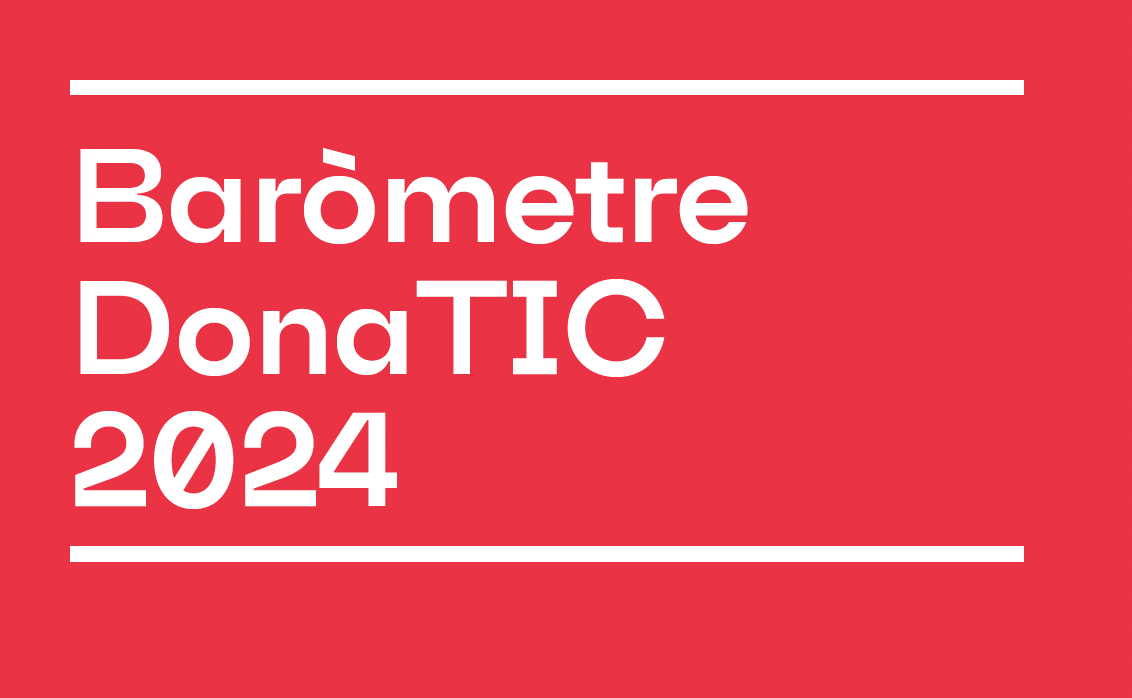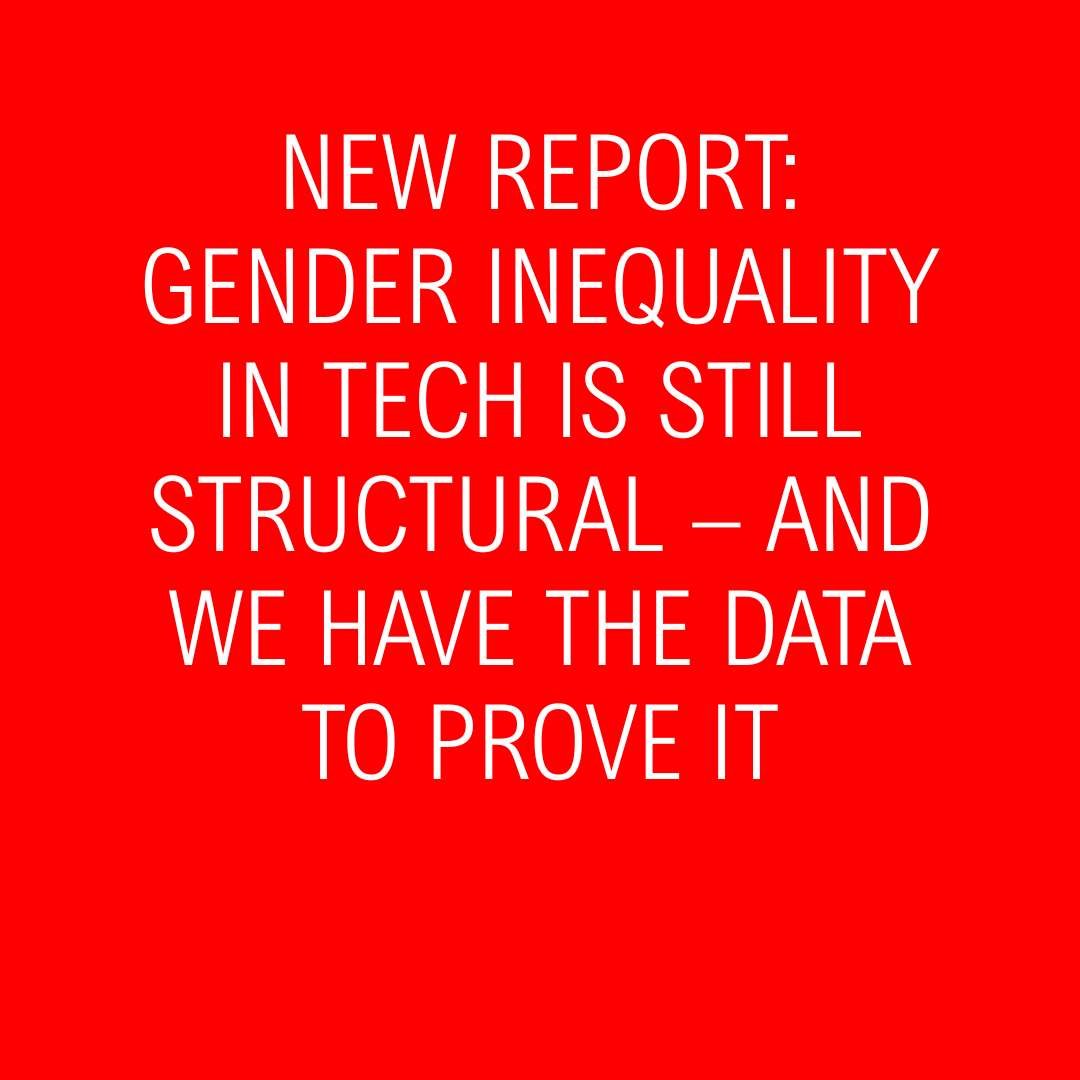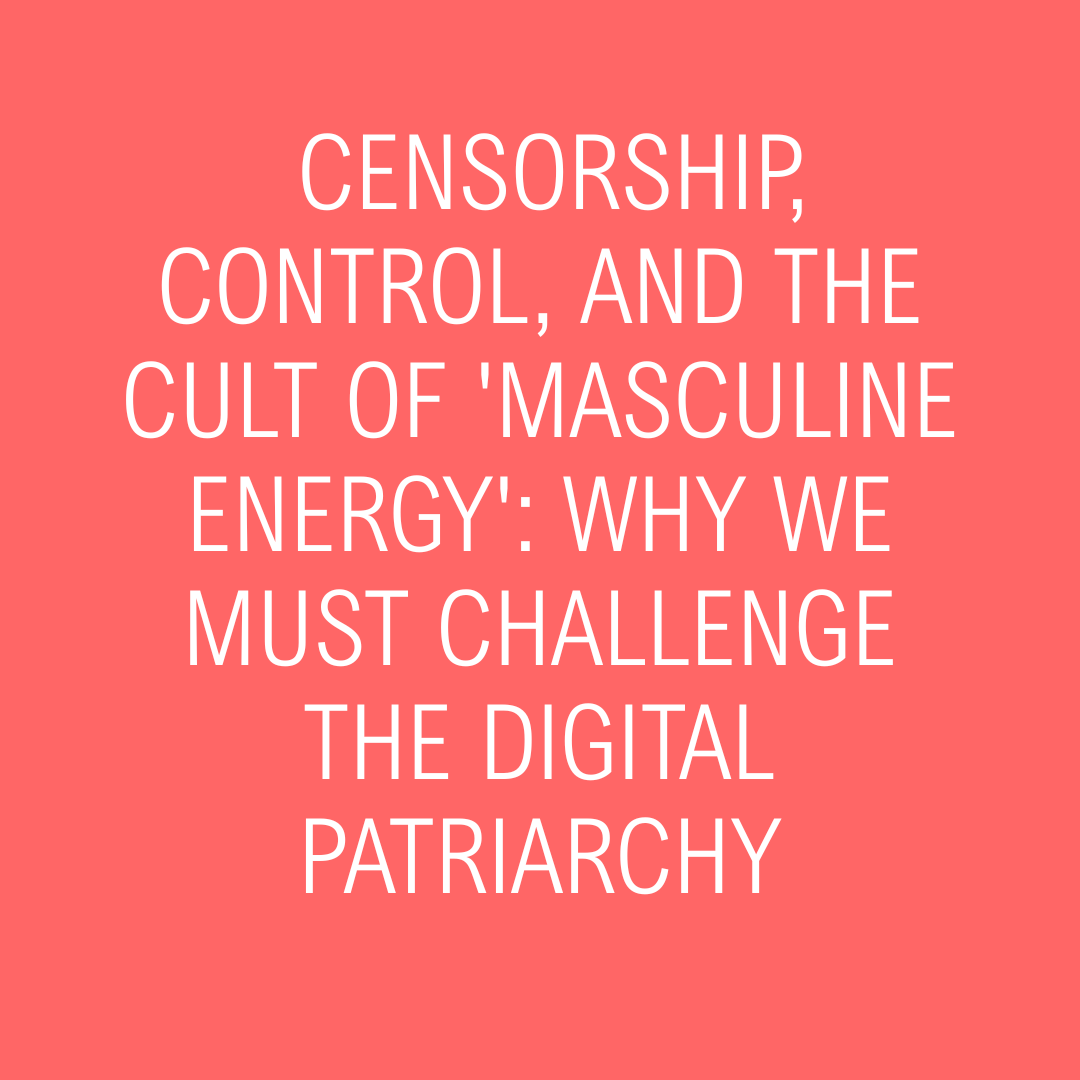
In collaboration with the Cercle Tecnològic de Catalunya, DigitalFems has co-authored the 2024 DonaTIC Barometer, an in-depth report on the gender gap in the Catalan tech ecosystem. While signs of progress exist, the overall picture remains alarmingly stagnant. This is not just a local issue—it reflects broader structural failures across Europe and globally.
The tech sector is not a meritocracy. Despite decades of initiatives, women and gender-diverse individuals remain significantly underrepresented, especially in leadership and technical roles. The narrative that talent rises regardless of gender is disproved, again and again, by the data
1. A Collective Effort to Measure What Matters
This report is the result of a strong collaboration between Cercle Tecnològic and DigitalFems, with the support of the Generalitat de Catalunya. It combines benchmarking across global, European and Spanish data sources with original fieldwork, including more than 1,500 survey responses from tech professionals and HR managers in Catalonia.
At DigitalFems, we believe that feminist data collection and intersectional analysis are fundamental tools for revealing what’s being systematically overlooked. This report is a critical step in that direction.
2. The Data is Clear: Gender Inequality is Embedded at Every Level
Some of the most telling findings include:
Only 17.2% of students in university-level ICT programs in Catalonia are women—still far from parity despite years of policy efforts.
Women occupy just 26.4% of technical specialist roles in the sector, and only 20.8% of executive leadership positions.
In startups, the imbalance is even more extreme: only 10% of companies reached gender parity in new hires during 2023.
43.4% of tech companies admit there are wage gaps between men and women in equivalent positions—yet 80% of employees believe there are none.
The presence of women in tech is strongly correlated to female leadership: companies led by women have a workforce that is 48% women; those led by men drop to just 17%.
These are not isolated statistics. They tell a story of systemic exclusion, biased pathways, and cultural inertia.
3. The Path Forward Requires Political Will and Structural Change
The report offers a comprehensive set of recommendations, not only for companies but for public institutions:
Mandatory tracking of gender-disaggregated data in recruitment, promotions, and pay.
Adoption of objective performance evaluation systems to eliminate promotion bias.
Urgent reforms in education: embedding computational thinking in early schooling, increasing places in ICT degrees, and supporting alternative tech education (bootcamps, FP, etc.).
Gender-aware investment in female-founded startups, with specific VC commitments.
Long-term cultural campaigns to dismantle digital gender stereotypes—especially on platforms like TikTok, YouTube and Instagram.
This is not about fixing women. It’s about fixing the system.
If we want an inclusive digital economy, we must stop treating gender equality as a side project. It is a matter of economic growth, innovation, and justice.


